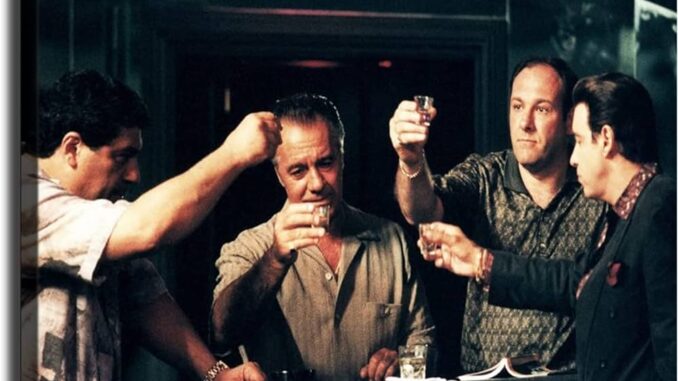
Why The Sopranos keeps feeling relevant after 25 years?
A lot of television shows premiered in 1999. Some of them are considered classics of the medium, like The West Wing and — I would argue — SpongeBob Squarepants. Others have become cult hits in the years since, like Futurama and Freaks & Geeks. of them, like Family Guy and Law & Order: SVU, are still on.
But it would be tough to argue that, at this moment, any of those shows — with the possible exception of SpongeBob — have had the same sort of long lasting cultural impact as The Sopranos. And for sure, part of the reason it feels like we’re in a Soprano-ssaince is because HBO has gone full court press on promoting the show’s quarter century mark — the show debuted 25 years ago last month — but also, the reverse is certainly almost true. HBO went hard in the paint for the show’s 25th anniversary because it’s having a second moment. After all, HBO didn’t have food pop-ups to celebrate Oz’s 25th anniversary, which was in 2022. (What would that have even looked/tasted like?) It didn’t release five hours of previously unaired scenes from Arliss when that show turned 25 in 2021. Bob Odenkirk didn’t go on Seth Meyers to talk about the 25th anniversary of Mr. Show in 2020. (Which in retrospect, seems like a shame. I think we all could have used a solid dose of Mr. Show in the fall of 2020.)
But then, those shows don’t have a listicle’s worth of podcasts about them, or a seemingly endless number of Instagram meme accounts. Young women on TikTok aren’t using Sandra Oh’s character in Arliss as fashion inspo. (Although, to be clear , they could: Rita Wu got some fits off.)

So why does The Sopranos continue to have such a hold on pop culture? It turns out that there are probably a lot of reasons.
The first and most obvious answer is nostalgia. Vik Singh, host of Sopranos rewatch podcast Poda Bing, points out that Millennials — the generation who were by-and-large teenagers during the show’s initial run — are in their peak earning years.
“When you’re at your peak earning power, you spend money on nostalgia,” he says, and adds that, for those who were too young to watch the show the first time around, part of the appeal may be looking back to a simpler time.
“The world is kind of a weird place,” he says. “Things kind of suck right now — we have inflation, the election, multiple wars. What have we, as humans, historically done when things are bad? We look back at the past.”
Adam Brockman did a Master’s thesis on The Sopranos’ impact on our cultural understanding of mental illness while at Illinois State University specifically in 2020. He says that, more, The Sopranos reflects a portrait of an America that people his age — he’s 29 — have never known: an era of middle class prosperity and political stability.
He adds that Tony Soprano’s mental health crisis comes, in part, from a sort of ennui that feels like a bit of a luxury good in 2024.
“They have money, they have families, life is good,” he says. “Yet they’re depressed … [by] the slog of everyday life: just trying to go into your kid’s PTA appointments and paying bills and everyday things that aren’t ‘t traumatic, but are dull and you have to kind of live through.”
He adds that for younger audiences, the show may also be an interesting time capsule in terms of its social attitudes, as well. Aside from his justified fear of racketeering charges, Tony Soprano is deeply worried that if other people in his life find out he’s seeing a panic, it will diminish his status in their eyes.
“The entire premise is about a guy going to therapy and not wanting other people to know,” he says. “The conversation around mental health and around treatment is very different, and a lot more nuanced now. I think a lot of people are interested in shows that cover that type of material, and a show that is 25 years old —a lot of people are interested to see ‘How has this held up?’
All that makes sense, but it doesn’t totally explain why The Sopranos is having a comeback while, say, The West Wing — a show where late ’90s stability and prosperity is even more deeply embedded — isn’t.
